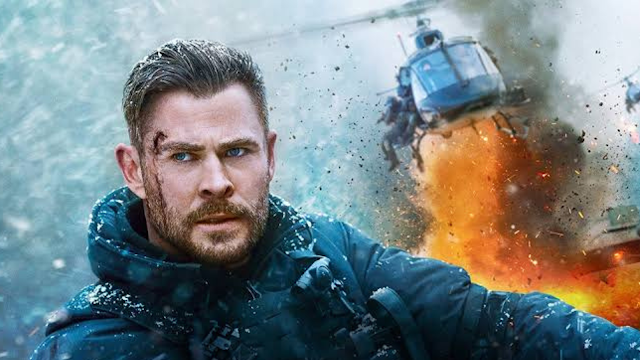Overseen and conceived by the Russo Brothers of Marvel acclaim, the "Extraction" films exemplify a diminishing breed: the high-budget, hyper-violent escapades. Whether the protagonist goes by the names of John Rambo, Jason Bourne, or John Wick, he embodies a familiar archetype—a prolific slayer who yearns to leave behind his lethal ways but repeatedly finds himself dragged back into the fray. His backstory is steeped in tragedy, weighed down by grief. The actor portraying him possesses an unyielding ferocity during violent sequences, instilling the belief that he could withstand an onslaught of 100 blows to the cranium, countenance, and torso, along with a gunshot, a knife wound, and the impact of a grenade explosion.
Critique from Robert Brian Taylor categorizes these movies within The Sad Action Hero canon. Chris Hemsworth stands as its most noteworthy addition. He portrays Tyler Rake—a moniker that sounds like a child's invention for an action hero, yet Hemsworth imbues him with a semblance of authenticity. As a physical performer, he rivals the prowess of Schwarzenegger and Stallone during their prime years, but with greater versatility. Hemsworth has convincingly portrayed a conniving male bimbo, a legendary computer hacker, a despondent mercenary, a 19th-century whaler, a cult leader, and the mighty Thor. He even exudes a touch of the youthful Sean Connery's self-assured swagger. However, beneath the surface, a concealed melancholy lies, and it is precisely what the "Extraction" films unearth.
Tyler, once an elite soldier within the Australian Army's special forces, elected to undertake another tour of duty in Afghanistan while his son battled an incurable illness. Tragically, he was absent when his son succumbed to the disease. Subsequently, his marriage crumbled, and he descended into the realm of a mercenary. Guilt stemming from his failures as a husband and father fuels the narrative of the "Extraction" franchise, paralleling the theme of amnesia in the "Bourne" series and mourning in the "John Wick" saga. Tyler's exploits represent redemption tales, unfolding within action-packed purgatories teeming with distorted versions of the hero—flawed fathers who mistreat, neglect, or manipulate their children, viewing them merely as extensions of their own ego or brand. Tyler's primary adversaries materialize as malevolent parents, serving as proxies for his own masochistic emotions concerning his familial letdowns.
In the initial installment of "Extraction," Tyler embarks on a mission to rescue the abducted son of an Indian drug lord, held captive in Dhaka, Bangladesh. The child becomes a pawn in a rivalry between affluent bullies boasting private armies. By accepting this mission, Tyler willingly positions himself as a karmic punching bag, enduring punishment for past transgressions within an urban inferno-purgatory (originally set in Paraguay in the graphic novel). Simultaneously, he assumes the role of a quasi-father figure, safeguarding the boy in his care. In the sequel, an unidentified individual (Idris Elba, exuding an irresistible charm that leaves one hoping for his presence in the third installment) arrives at Tyler's woodland retreat, delivering a message from his ex-wife, who, as it turns out, hails from Georgia. Her sister and children are imprisoned by her drug-dealing husband, Davit (Tornike Bziava), who possesses enough influence to keep them captive. Rake is recruited to orchestrate a prison break, liberating the family from Davit's clutches, along with his even more deranged brother, Zurab (Tornike Gogrichiani). Naturally

Comments
Post a Comment